
Hair health
When it comes to hair care, there are countless remedies, regimens, and steps you could follow. And while vitamin supplements may or may not work for many ailments, vitamins and supplements often have the potential to give your body the added boost it needs to grow strong, healthy hair free of breakage and damage. According to doctors and hair experts, there are a few telltale signs that a hair vitamin is needed.
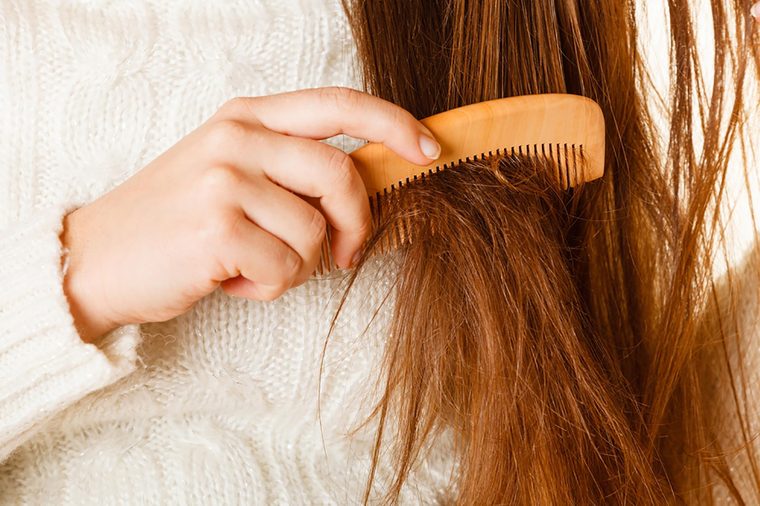
Your hair is tangling more than usual
Hair tangling is a pesky problem, but it also poses as a sign for something bigger than just not being able to run a comb through it. Tangled hair happens when the outermost layers of your strands, known as the cuticle, become damaged, open up, and more easily entangle other strands. To protect your hair cuticles and increase the overall health of your hair, consider a supplement such as Phillip Kingsley PK4, which can be especially helpful for people who don’t get a lot of protein in their diet.
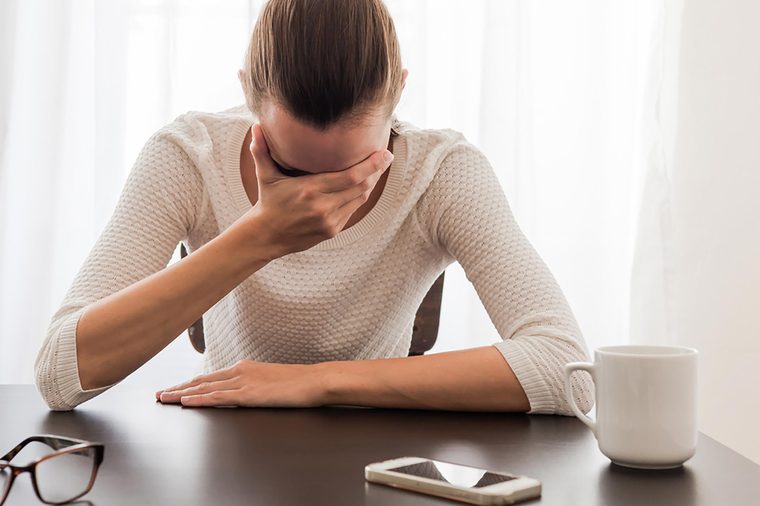
You’re under a lot of stress
Stress takes a real toll on your body—and that includes your hair. Try some of these 37 stress release tips to find relief. “For patients who are stressed, their busy life is often the reason that their habits suffer,” says family physician Mia Finkelston, MD, who treats patients virtually via telehealth app, LiveHealth Online says. “Large clumps of hair often fall out when patients experience significant losses in their lives and poor sleep. Typically, when their habits improve their hair loss stabilizes. In this case, supplements with biotin and vitamins D and C may be beneficial.”
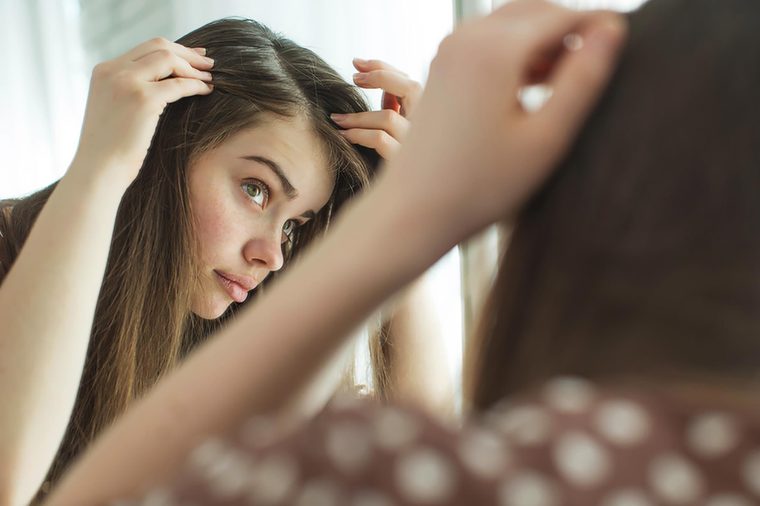
Hair loss runs in your family
Genetics can dictate many aspects of your health, and yes—that extends to how much hair you may or may not lose when older. “The first step is to consider what medications someone is on, their hormone levels, and their family history,” Finkelston notes. “I remind patients that we lose hair daily and there are certain seasons when one may shed hair more. I assure them that the new ones sprout easily with help from a healthy lifestyle.” Some people can benefit from a supplement like Qilib, which combines the hair regrowth chemical minoxidil with botanical solution to give much-needed nutrients.
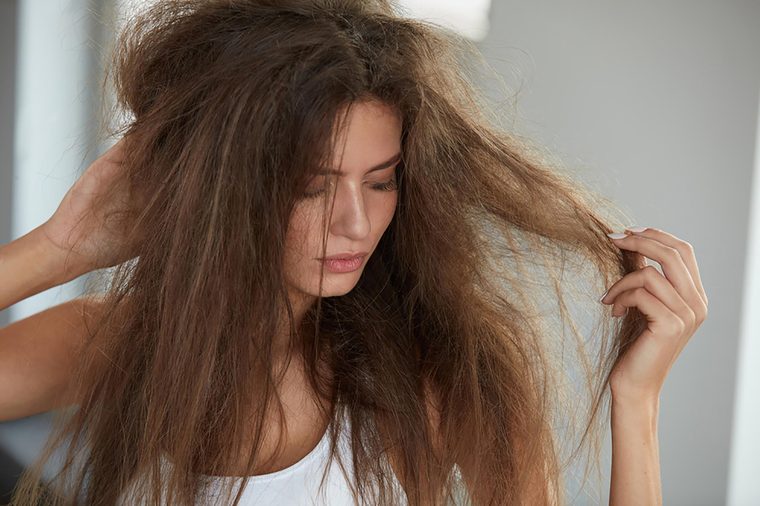
Your hair is super shiny or super dry
Siobhan Quinlan, creative director, stylist, and colorist at Art + Autonomy Salon in New York City, urges clients to keep an eye out on the texture and overall feel of your hair when considering hair vitamins. “If it has suddenly become very dry without activity that would warrant that… If it has lost a lot of shine, that’s a sign that the cuticle has been opened and not closed back down all the way, causing hair to look dull,” she explains. Vitamins A and E are often recommended for dry hair.
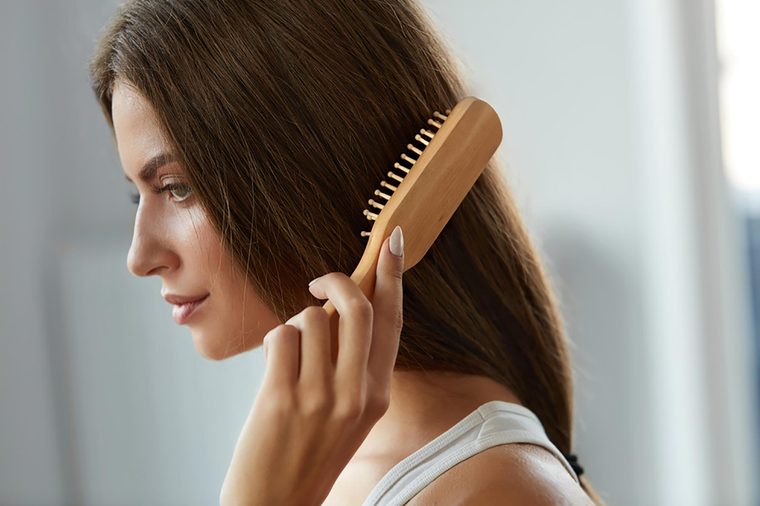
You’re thinning at the crown
Overall hair thinning is a surefire way to know if your hair is in need of some TLC. Quinlan adds that hair that’s been over-processed by color may be subject to thinning, as well as keeping an eye on the thickness of your ponytail. Try Viviscal or another regrowth supplement to support your mane.
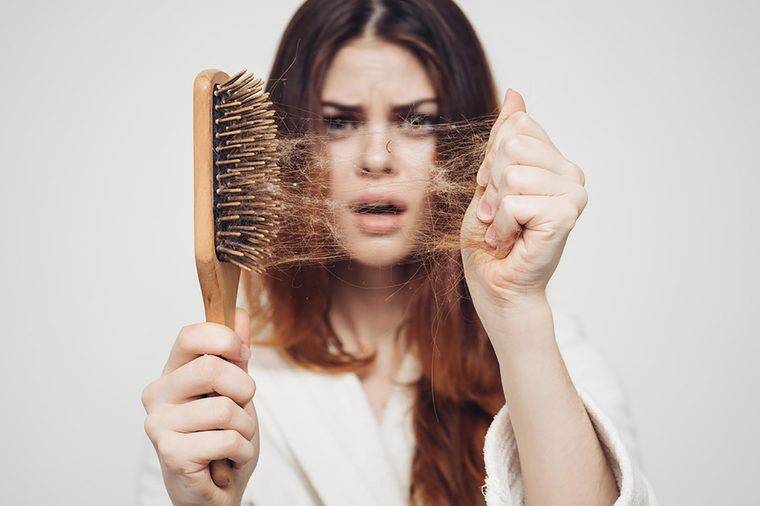
You notice breakage in your hair
A few simple at-home tests can quickly lead you to determine if your strands are breaking or not. First, check your ends—splitting ends equals unhealthy, whereas even, clean ends equals healthy. Next, test your hair’s porosity by putting a few strands in water. If they absorb the water and sink, they’re porous and need more moisture. Lastly, test your hair’s elasticity by gradually pulling a strand of wet hair. If it’s healthy, it can stretch naturally and then shrink back to normal. If unhealthy, it needs more protein or moisture. That’s where a vitamin comes into play. Of course, a good source of vitamins and minerals can come from the foods we eat. “Biotin is easily obtained through food—eggs, nuts, and almonds in particular. Legumes are excellent sources and foods to be eaten daily,” Dr. Finkelston suggests, noting that this isn’t a “quick cure,” which can cause some frustration. Instead, a basic biotin supplement can provide quicker results for hair loss.
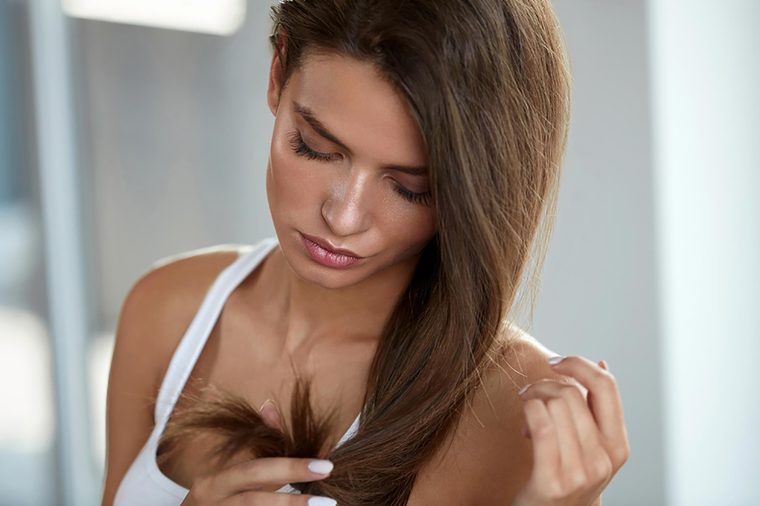
Your hair refuses to grow
You may have noticed it’s been quite a few months since you’ve needed a haircut. If that’s the case, it’s your hair’s length rather than each individual strand that needs attention. Biotin, as well as other hair vitamins or growth treatments such as Viviscal or Qilib can help with that and also act as a preventative measure for those looking to support healthy hair in the future.
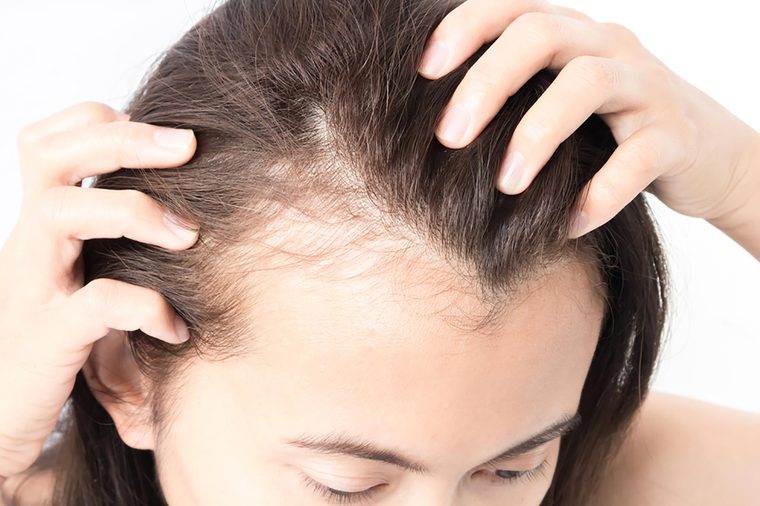
You notice large bald spots on your scalp
Here’s an alarming one: bald spots. “Female patterned baldness or androgenic alopecia is not as common [in women] as it is in men,” Finkelston explains. “There is evidence that there are many factors that contribute to female patterned baldness like hormones, multiple enzymes and blockers.” Oftentimes, this is a much more severe case of hair loss, where a patient has no obvious hair follicles on the scalp. For these cases, Dr. Finkelston suggests using reputable name brands, such as the ones mentioned above, when choosing hair vitamins, as well as maintaining a healthy, balanced lifestyle.